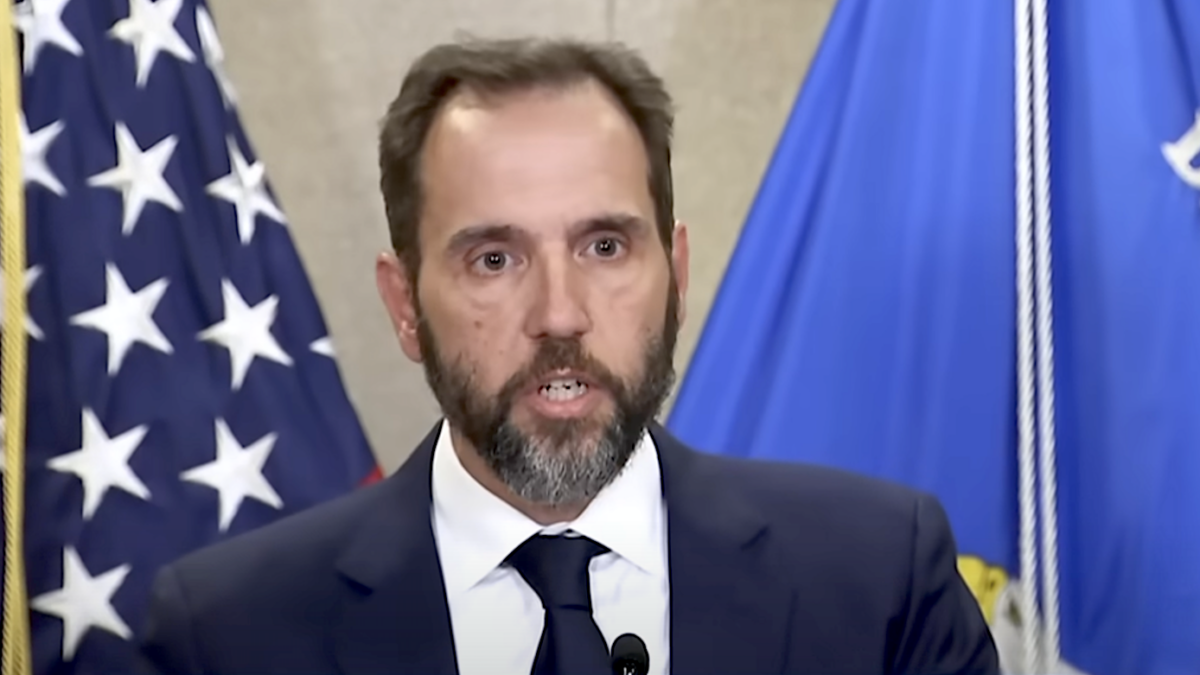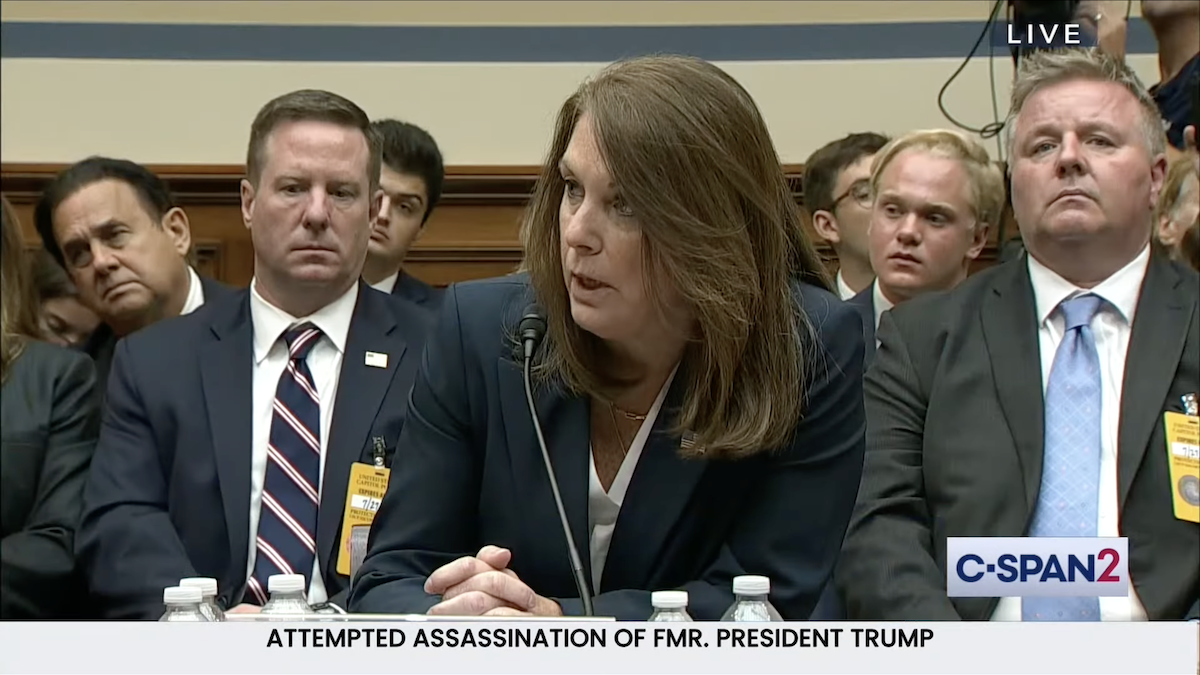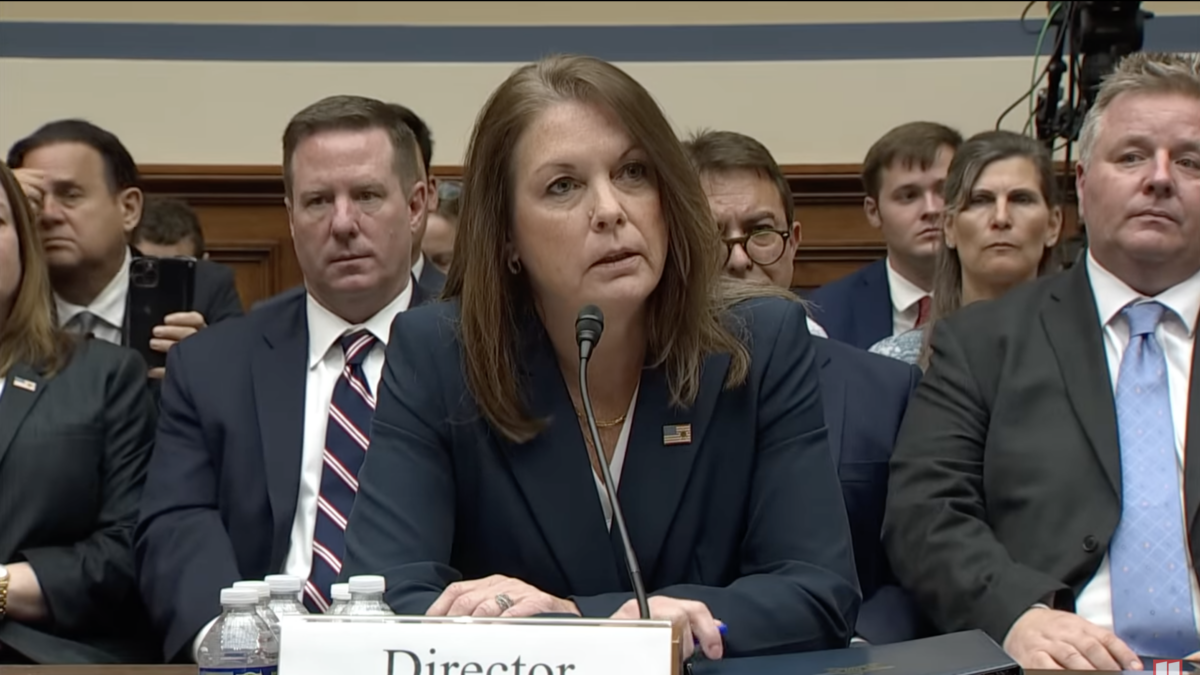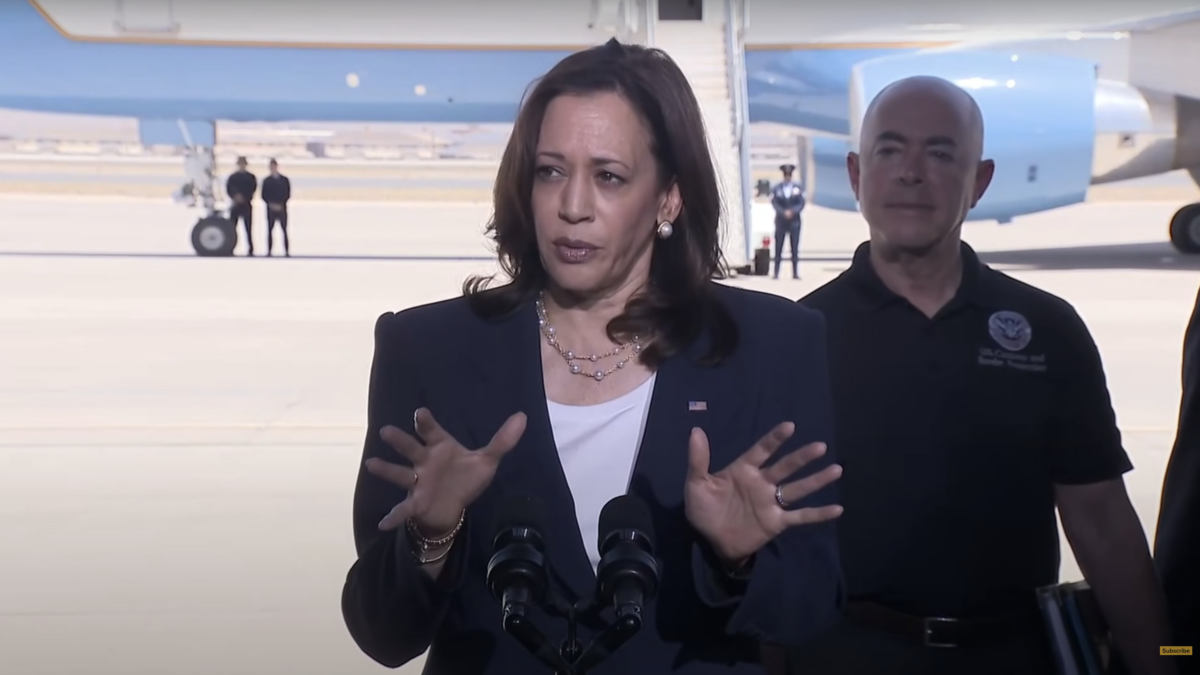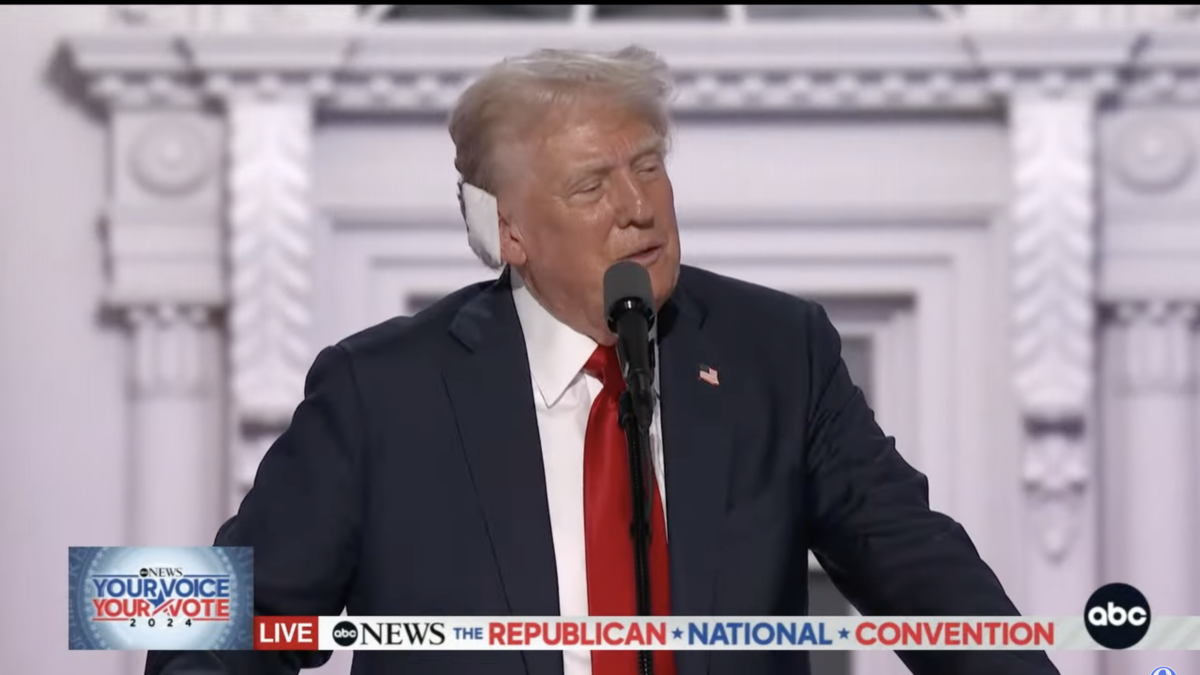A recently published inspector general report, paired with newly released transcripts of one FBI official’s 2023 interview with the House Judiciary Committee, shows that the FBI’s strategy for retaliating against whistleblowers involved suspending their security clearances without explanation or warning.
Jennifer Leigh Moore, who served as executive assistant director for the FBI’s human resources branch until her retirement in June 2023, told congressional investigators that she is “adamant for every employee to be treated fairly and accurately” and that her “whole management principle is around ‘be kind.’”
“No matter what we’re doing, if we’re suspending a clearance, if we’re bringing on board an employee, or if we’re at a retirement, we are always kind,” she told the House Judiciary Committee in April 2023.
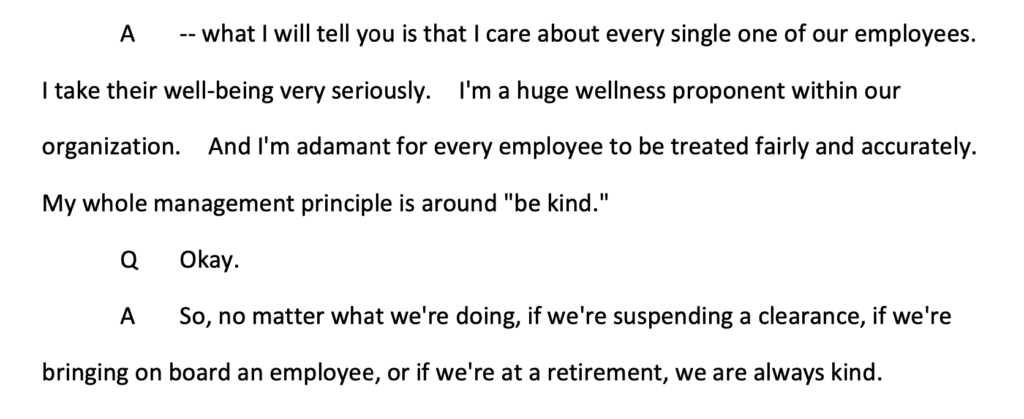
Moore and her agency’s actions regarding retaliation against whistleblowers, however, suggest otherwise.
House Judiciary Chairman Jim Jordan expressed strong concerns that the FBI initiated a targeted “purge” of employees with dissenting views last year. Moore first testified to the committee about the issue in April 2023 but refused to comment any time she was asked about several agents who suffered suspensions.
She claimed she was “not allowed to discuss ongoing security investigations,” prompting the House Judiciary Committee to subpoena her for refusing “to answer questions during her transcribed interview about the FBI’s retaliation against brave whistleblowers who have come forward.”
Special Agent Garret O’Boyle, Special Agent Stephen Friend, Supervisory Intelligence Analyst George Hill, and Staff Operations Specialist Marcus Allen all testified to Congress in early 2023 that the FBI not only weaponized itself against its political opponents but punished employees who tried to uncover the corruption.
In June 2023, shortly after the whistleblowers publicly shared their stories and one day before she left her job at the bureau, Moore testified again. In that sitdown, she admitted that, as the security program manager, she was the “ultimate decisionmaker when it comes to suspending a security clearance.”
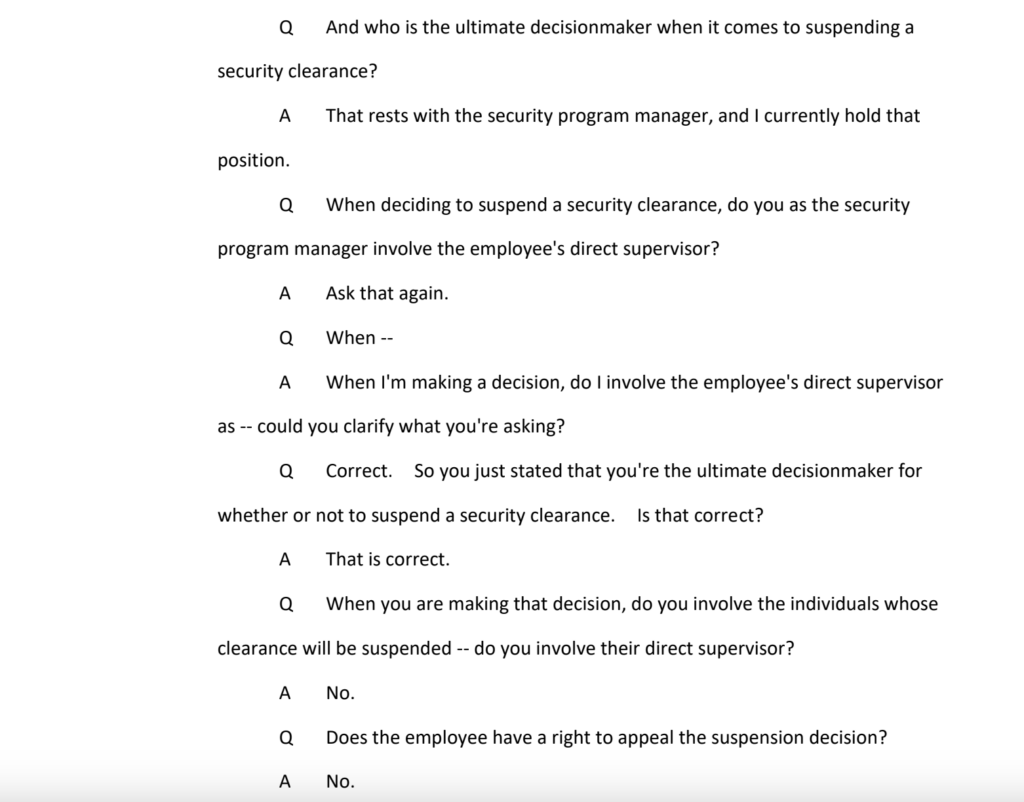
When asked to explain the “steady rise in referrals” for “security incidents and security investigations” in recent years, Moore claimed it was because the FBI’s Security Division began “really emphasizing operation securities throughout the organization.”
“We do monthly newsletters, and they have posters that go up throughout the office, and people better understand the process. People were more likely to report. It’s across the board. We see it, I believe, also in our internal investigation referrals,” she continued.
Moore even suggested the agency suddenly became more efficient at revoking security clearances because it “bifurcated or trifurcated our investigative group into three different parts” and “increased the staffing.”
Moore categorically denied accusations that the FBI retaliated against certain agents because they held beliefs contrary to that of the Democrat regime.

She even claimed in her April interview that the FBI never suspended any agents “for executing lawful and legal First Amendment rights as it relates to January 6th.”
Yet Moore later admitted that Marcus Allen, a former Marine and staff operations specialist who testified to Congress about his agency’s partisan firings, was rooted in his “conspiratorial views” on Jan. 6, 2021, which she defined as “alternative views to what was known as public knowledge.”

Moore also confirmed that the FBI designated agents who did not comply with President Joe Biden’s September 2021 Covid jab demands as AWOL until a preliminary injunction was issued against the order in January 2022.
Horowitz Confirms Retaliation
The release of Moore’s 2023 transcripts coincides with a report from Department of Justice (DOJ) Inspector General Michael E. Horowitz on Tuesday confirming the FBI abused and delayed its security clearance evaluation procedures to punish employees who spoke up about the bureau’s corruption.
Horowitz initiated his investigation after receiving myriad complaints “from employees of a DOJ component, alleging that their security clearances were suspended in retaliation for protected whistleblowing activity.”
Current FBI policy does not allow “employees whose security clearance has been suspended for more than 1 year to file a retaliation complaint.” Data provided to the OIG by the FBI suggests 106 employees over the last five years were stripped of their security clearance for longer than six months — for an average of 17.5 months. This indefinite suspension, Horowitz noted, completely inhibits agents’ ability to formally claim retribution.
“As this data reflects, it is unlikely that security clearance reviews, from suspension to a final decision to revoke, are being completed in 1 year,” the report notes.
Federal whistleblower protection laws prohibit government agencies from cutting off an employee’s access to classified information because he or she made a “protected disclosure.”
As the Judiciary Committee and Weaponization Subcommittee noted in their May 2023 report, the FBI “violated federal whistleblower protection laws and abused its security clearance review process to hamstring the brave agents who exercise their right to make protected disclosures to Congress or who dared to question agency leadership.”
“Whistleblower testimony makes clear that the FBI rid itself of employees who dared to
speak out against FBI leadership or to raise good-faith concerns about FBI operations,” the report notes.
The report goes so far as to conclude that “the FBI’s partisan leadership is currently engaging in a ‘purge’ of agents who hold conservative political beliefs.”
Polling suggests more than half of the nation wants the FBI to face some form of punishment for its partisan weaponization campaign against Americans.


